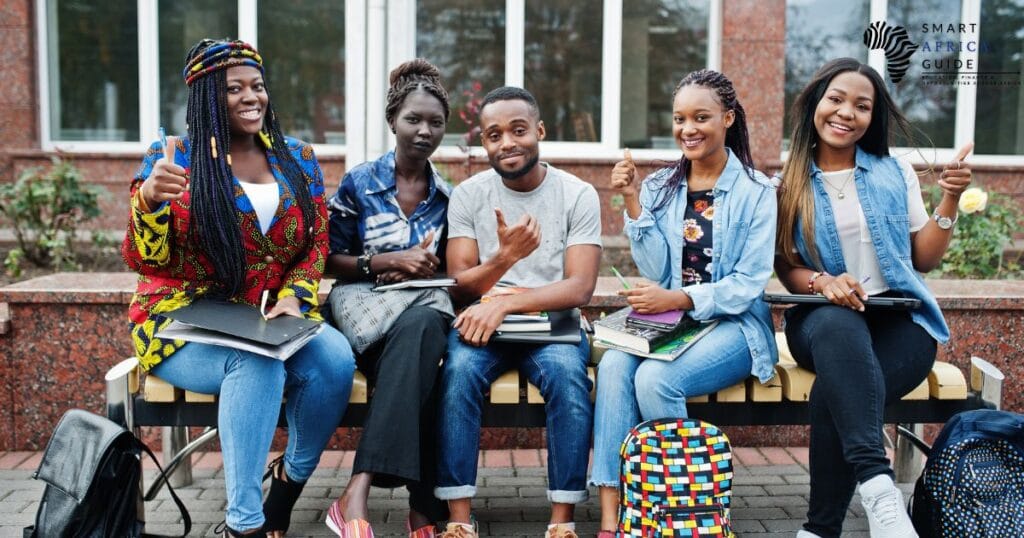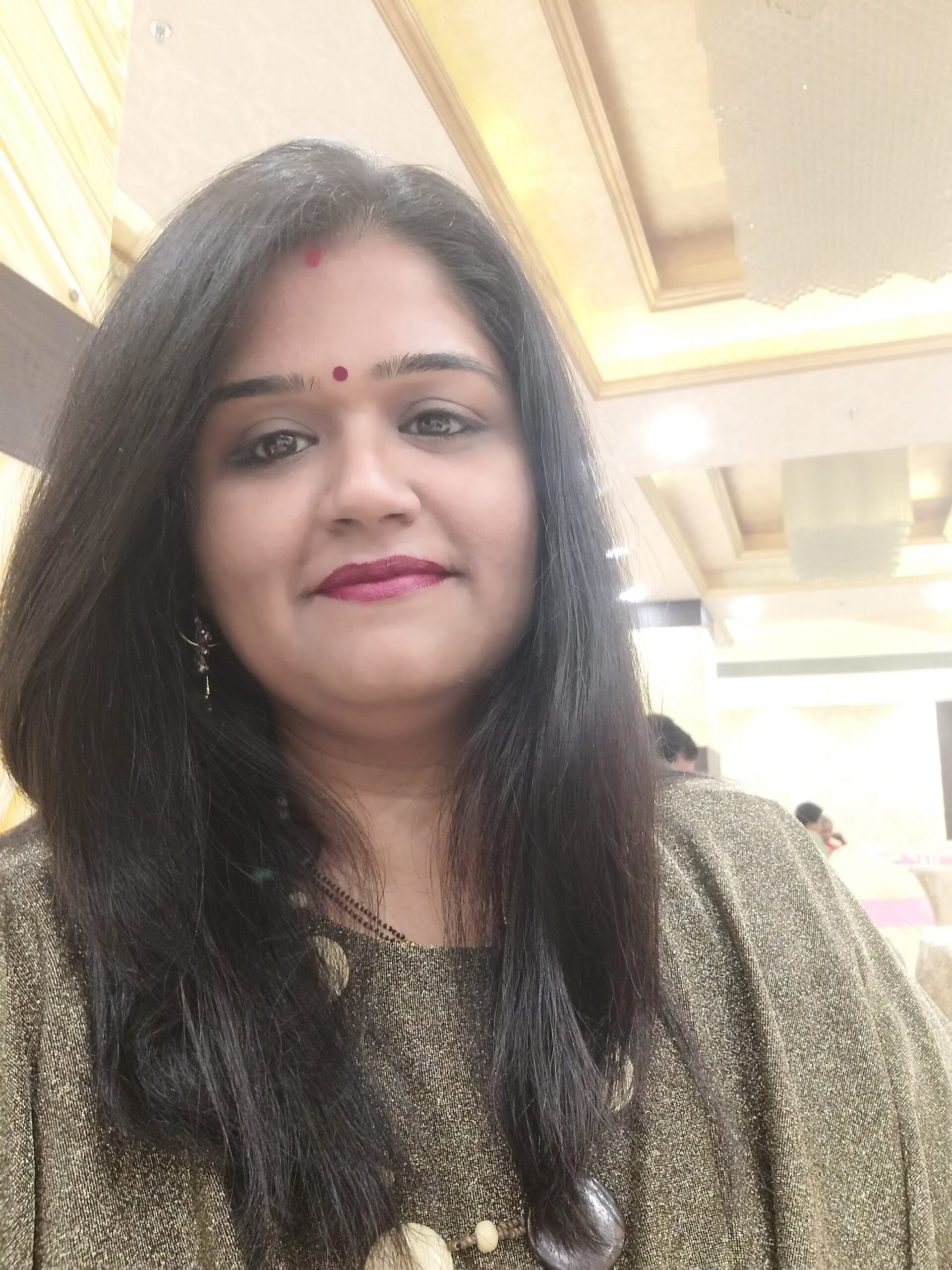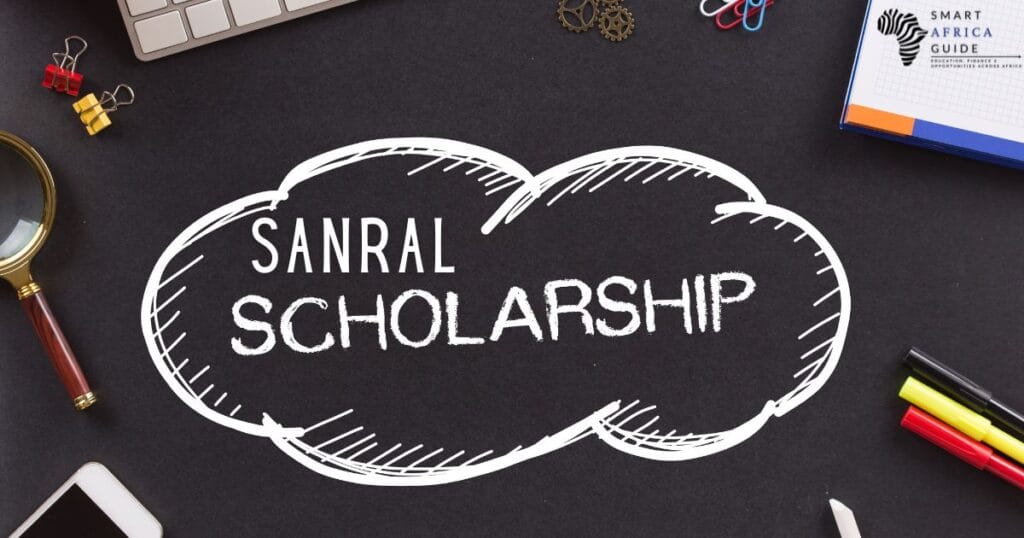Last updated on January 6, 2026
Many African students hear about the Mandela Rhodes Scholarship and assume it is only for “geniuses” or people with perfect CVs. In reality, it is a competitive programme, but it is also very human. It looks for young Africans who are serious about learning, leadership, and the future of the continent. If you are planning to study in South Africa at Honours or Master’s level, this scholarship can remove most of the financial pressure and put you inside a strong leadership network.
Table of Contents
What is the Mandela Rhodes Scholarship?

The Mandela Rhodes Scholarship is a fully funded postgraduate scholarship for young Africans who want to study in South Africa and grow as leaders at the same time. It supports Honours and Master’s studies at recognised universities and combines this with a structured leadership development programme.
The foundation behind the scholarship is inspired by the legacy of Nelson Mandela. The programme is built around values such as reconciliation, education, entrepreneurship, and ethical leadership. Scholars do not just attend classes and write exams. They also join residential workshops, dialogues, and group work that push them to reflect on who they are and how they want to contribute to Africa.
“Education is the most powerful weapon which you can use to change the world.”
Nelson Mandela
Who can apply for the Mandela Rhodes Scholarship?
The main requirement is that the applicant must be a citizen of an African country. The scholarship is open to students from across the continent, not just those already living in South Africa. It is usually aimed at applicants between 19 and 29 years old by the time the scholarship begins.
You must have already completed an undergraduate degree, or be in your final year and on track to finish before the scholarship year starts. The academic record needs to be strong, roughly in the upper second class or above. The programme only supports full-time studies, so distance learning and most online degrees are not eligible. Applicants must also be ready to travel to South Africa and attend the in-person leadership programme activities.
What does the Mandela Rhodes Scholarship cover?
The financial package is one of the main reasons this scholarship is so attractive. It usually includes:
- Tuition and registration fees at a South African university
- Accommodation in residence or suitable student housing
- Meals or a meal allowance
- A personal allowance for basic living costs
- Support for books and study materials
- Medical aid cover
- Economy-class travel to and from South Africa at the start and end of the programme
This wide coverage allows scholars to focus on their studies and leadership journey without constantly worrying about bills. The leadership element is an extra benefit, built on top of already generous financial support.
Which degrees and fields of study are supported?
The scholarship mainly supports:
- Honours degrees (one year)
- Master’s degrees (coursework or research, usually one to two years)
Most academic fields are allowed, as long as the programme fits the duration and is based at a recognised South African institution. However, certain programmes such as MBAs or very short professional courses are not normally funded. It is always important for applicants to check the latest official guidelines and make sure their chosen course is compatible with the scholarship rules.
What kind of person is the Mandela Rhodes Foundation looking for?
Beyond grades, the foundation looks for a specific type of young leader. A strong applicant usually shows:
- Consistent academic performance
- Evidence of leadership in school, university, community or workplace
- A clear sense of purpose and values
- Openness to learn about themselves and others
- Commitment to contributing positively to Africa
Leadership can be formal or informal. It might be starting a small community project, mentoring younger students, organising a club, or driving change in a local organisation. What matters is that the person takes responsibility and shows initiative, not just titles on paper.
Which documents are needed for the application?
The exact list can change slightly, but applicants will typically prepare:
- A full academic transcript for all completed university years
- Degree certificate or official letter if still completing
- Copy of passport or national ID
- A detailed CV with education, activities, and leadership roles
- Several written essays or motivation statements
- Contact details for referees who can comment on character and academic ability
Referees are usually lecturers, supervisors, or mentors who know the applicant well. It helps to contact them early so they have time to write thoughtful references before the deadline.
How do you apply for the Mandela Rhodes Scholarship?

The application process is online. A typical journey looks like this:
- Check eligibility
Confirm age, citizenship, academic level, and study plans match the criteria. - Research your programme
Choose an Honours or Master’s course in South Africa that fits your goals and the scholarship duration. - Create an account on the official portal
Fill in your personal details, academic history, and proposed field of study. - Prepare and upload documents
Add transcripts, certificates, identification, and your CV in the required format. - Write and refine essays
Respond carefully to every question. The essays are where your story and values come through. - Nominate referees
Enter their details early so they receive the system emails and have time to submit. - Submit before the deadline
Double-check every section, then submit your application and keep a copy of the confirmation.
How does the selection process work?
After the deadline, applications go through several filters. First, the team checks basic eligibility and completeness. Then evaluators read essays, review academic records, and look at leadership experience and potential. Some candidates are removed at this stage if they do not fit the core values of the programme.
Shortlisted candidates may be invited to further stages, which can include interviews or more detailed assessments. These conversations explore character, maturity, and readiness for the leadership journey. The final selection aims to build a diverse cohort, balancing fields of study, countries, and personal stories.
How can you make your Mandela Rhodes application stronger?
A strong application usually feels honest and specific. A few practical tips:
- Use real examples instead of general statements
- Show how your studies connect to a bigger goal for your community or country
- Reflect on moments of challenge, not only success
- Keep your scholarship essays clear and natural, as if you are talking to a mentor
- Ask someone you trust to read your drafts and point out any confusing parts
It also helps to start early. When you give yourself time, your writing becomes calmer and more reflective. Last-minute essays often sound rushed and less personal.
Which other scholarships should you explore?
Students who are interested in the Mandela Rhodes Scholarship often look at other programmes with similar values. Two that are especially worth exploring are already covered on SmartAfricaGuide:
- Investec Bursary Programme – Ideal for South African learners who need strong academic and financial support at high school and tertiary level.
👉 Read the full guide here: https://smartafricaguide.com/investec-bursary/ - Mastercard Foundation Scholarship – A major programme that supports African students with full funding and leadership training at partner universities.
👉 Full breakdown here: https://smartafricaguide.com/mastercard-foundation-scholarship/
Comparing these opportunities helps students decide which route fits their situation and long term plans best.
Application Timeline
For the Class of 2026, the application window was:
- Applications open: 17 March 2025
- Application deadline: 21 April 2025 (23:59 GMT+2)
This means the application period for 2026 has already closed.
What to Expect Next
The next intake — the Class of 2027 — is expected to follow the typical schedule of previous years:
- Application window likely to open: mid-March 2026
- Application deadline likely to close: late April 2026
Exact dates are published by the Mandela Rhodes Foundation each year, so it’s important to check the official scholarship site when the call for applications goes live.
Final thoughts for African students considering Mandela Rhodes
The Mandela Rhodes Scholarship is not just about getting money for university. It is about joining a circle of young Africans who are serious about learning, leadership, and impact. If you are between your late teens and late twenties, have a strong academic record, and feel a pull towards meaningful change, this opportunity deserves your attention.
Taking the first step can feel intimidating, especially when you read the stories of past scholars. Still, every person in that network once filled in an application form and wondered if they were good enough. Careful preparation, honest reflection, and a clear sense of purpose can take your application much further than you think.

Varsha Asrani is a lecturer and education writer with experience as Visiting Faculty at AUPP and ATMC College, and as a Lecturer with TalentEdge and UpGrad. She is the Founder of the Asrani Institute of Education and Counselling. Varsha specializes in scholarships, e-learning, and career guidance for African students and professionals, and regularly visits Africa to gather first-hand insights that shape her research and articles.




